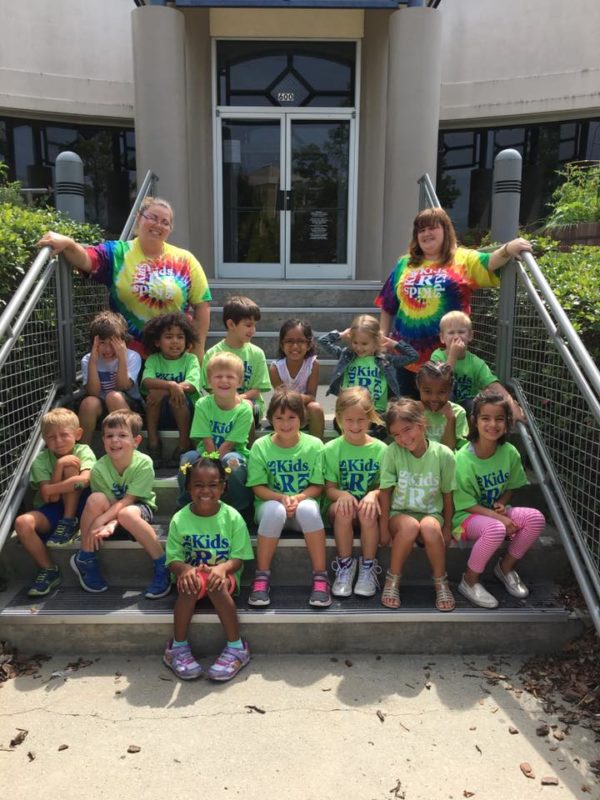Sleep and Brain Development in Preschoolers
By Guest Bloggers from Kids ‘R’ Kids Learning Academies of Greensboro
A preschool child’s sleep is one of the most important topics to cover when talking about brain development. Getting enough sleep will not only improve your child’s mood, but will also improve their educational performance dramatically.
Synapse Creation in the Preschool Brain
Synapses are created during the day at a rate of 800 per second during times of cognitive stimulation. A brand new synapse is very fragile, especially immediately following its creation. The brain takes care of this through a process called neuroplasticity. During sleep, the brain forms these connections together and makes them significantly stronger. This is accomplished during “slow wave sleep,” in the part of the brain called the hippocampus, which helps with vocabulary, and during stage two of the non-REM sleep to help motor skills. Any emotional or social memory is solidified during REM sleep.
Preschoolers’ Sleep Compared to Adults’ Sleep
Forty percent of a child’s sleep time is spent in slow wave sleep, which is ten times more than an adult’s sleep pattern. Facts are retained and solidified during this time. Studies have shown that missing a single hour of sleep can reduce the cognitive maturation process by the equivalent of two years. Basically, an eight year old will perform at the level of a six year old. IQ drops 7% with a single missed hour, and the ability to “catch up” eventually gets lost if sleep loss is chronic. Over all, children should get a minimum of 8 to 10 hours of sleep.
Lack of Sleep Causes a Shorter Attention Span
A lack of sleep debilitates the body’s ability to extract glucose from the bloodstream. This is the energy pill that all cells use to function. Research has shown that the portion of the brain that is affected first and worst is, you guessed it, the prefrontal cortex. Less sleep means less attention, less focus, and less self-control.
Positive Emotions
There is another incredibly fascinating fact about how the brain processes memories and how that memory storage is affected by sleep loss. Any emotional component of a memory gets stored in one of two locations. If the memory is negative, it will get stored in the part of the brain called the amygdala. If the memory is positive, it gets stored in the part of the brain called the hippocampus.
Sleep deprivation hits the hippocampus much harder than the amygdala. This results in children only remembering negative memories, causing a much more negative impact on a child’s perspective. This is one big reason why children experiencing puberty seem so sullen and depressed. They get less sleep, and the negativity of the days past sticks with them.
Sleep Deprivation and Memory Loss
A study was conducted with college students memorizing a long list of words. After they had proven they had memorized all of them, they we deprived of sleep and then asked to repeat all the words. They remembered 81% of the negative words like cancer but only 31% of the positive words such as sunshine.
Of all the things we cannot control in the lives of our children, like what they see or hear, there is one thing we can control. We can create a sleeping environment that exists without a cell phone, TV, computer, or any other electronic device.
When preschoolers get enough sleep it changes the fundamental structure of their brain and alters every other brain process the following day. When they consistently get enough sleep children feel happier, are smarter, and will develop a brain that can handle challenges that come later in life.
For more information on special preschool programs that help and support your child in reaching his or her learning goals, talk to the staff at one of the premiere schools listed on Kids ‘R’ Kids Learning Academies of Greensboro. The Kids ‘R’ Kids First Class Curriculum® incorporates many learning tools that are fun and engaging, and the staff would love to discuss each program with you.


